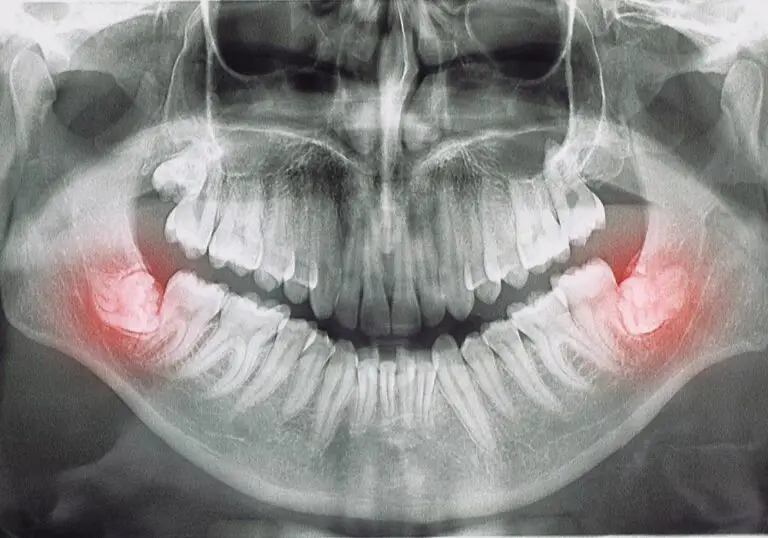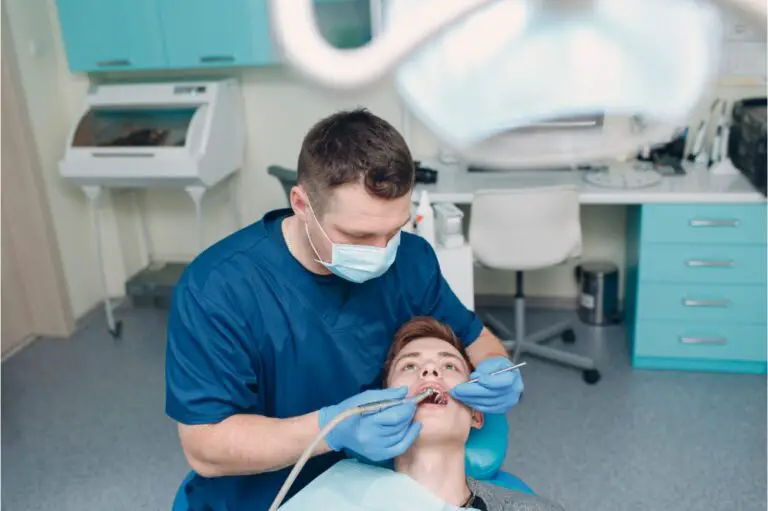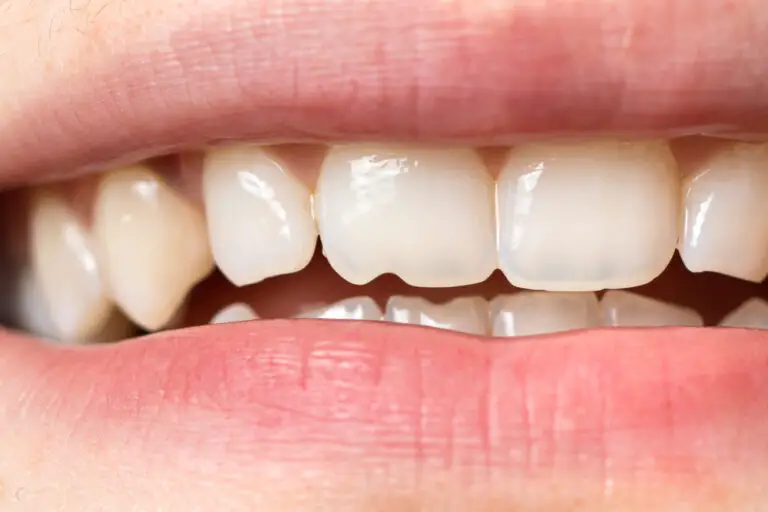If you’re considering getting dental caps, also known as dental crowns, you may be wondering how they are attached to your teeth. One common question is whether teeth caps are glued on. The answer is yes, dental caps are typically attached to your teeth using a strong dental cement.
Dental caps are used to cover damaged or weakened teeth, restoring their shape, size, and strength. They can be made from a variety of materials, including metal, porcelain, and resin. Once your dentist has prepared your tooth for a cap, they will use dental cement to bond the cap to your tooth. The cement is applied to the inside of the cap, which is then placed over your tooth and held in place until the cement sets.
Understanding Teeth Caps
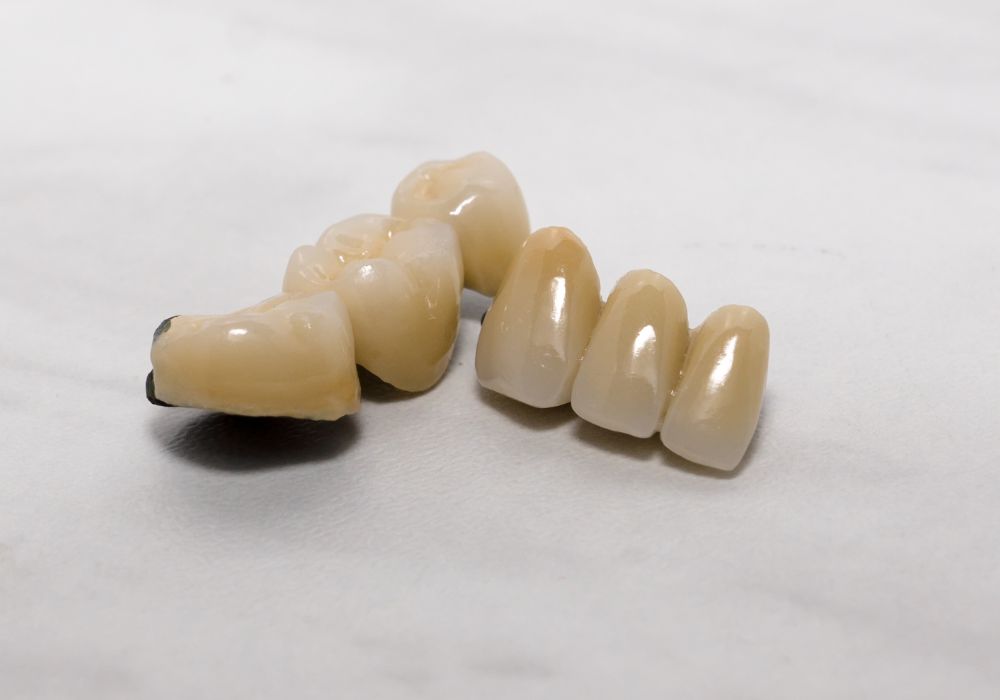
If you have a damaged or discolored tooth, your dentist may recommend a tooth cap or dental crown. Here is what you need to know about teeth caps.
What Are Teeth Caps?
Teeth caps, also known as dental crowns, are custom-made caps that fit over your existing teeth. They are designed to protect and restore the appearance of damaged or decayed teeth.
Teeth caps can be made from different materials, including metal, porcelain, or a combination of both. Your dentist will help you choose the best material for your needs based on the location of the tooth and your budget.
Types of Teeth Caps
There are several types of teeth caps available. Here are the most common ones:
- Metal Crowns: Made from alloys such as gold, nickel, or chromium, metal crowns are durable and long-lasting. They are often used for molars or back teeth that are not visible when you smile.
- Porcelain Crowns: These crowns are made from a ceramic material that matches the color of your natural teeth. They are a popular choice for front teeth or visible teeth.
- Porcelain-fused-to-metal Crowns: These crowns have a metal base with a porcelain coating. They are stronger than all-porcelain crowns and can be used for both front and back teeth.
- Zirconia Crowns: These crowns are made from a strong, tooth-colored material that is biocompatible and long-lasting. They are a good choice for people with metal allergies.
Teeth caps are typically attached to your teeth using dental cement. Your dentist will prepare your tooth by removing a small amount of enamel, then take an impression of your tooth to create a custom cap that fits perfectly.
Overall, teeth caps are a great option for restoring damaged or discolored teeth. Talk to your dentist to see if a tooth cap is right for you.
The Process of Applying Teeth Caps
Teeth caps, also known as dental crowns, are a type of dental restoration that can improve the appearance and function of your teeth. They are usually made of porcelain, metal, or a combination of both, and are designed to fit over the remaining part of a damaged or decayed tooth. But how exactly are teeth caps applied? Let’s take a closer look at the process.
Preparation Stage
Before the cap can be applied, your dentist will need to prepare your tooth. This typically involves removing any decayed or damaged parts of the tooth, and shaping it so that the cap will fit securely over it. Here are the steps involved in the preparation stage:
- Your dentist will numb the area around the tooth with a local anesthetic to minimize any discomfort.
- The tooth will be filed down to make room for the cap. This may involve removing a significant amount of the tooth’s natural structure.
- If the tooth is severely damaged or decayed, your dentist may need to build it up with a filling material to provide a stable base for the cap.
- Once the tooth has been prepared, your dentist will take an impression of it. This will be used to create a custom-fitted cap that matches the shape and size of your tooth.
Application Stage
Once the tooth has been prepared and the cap has been created, it’s time to apply the cap. This usually involves two separate appointments with your dentist. Here’s what you can expect during the application stage:
- During your first appointment, your dentist will fit the cap onto your tooth and check to make sure it fits properly. They may need to make some adjustments to ensure a comfortable fit.
- Once the cap has been fitted, your dentist will use a special dental cement to bond it to your tooth. This cement is designed to be strong and durable, and will hold the cap securely in place.
- Your dentist will then use a special light to harden the cement, which will help to ensure that the cap stays in place.
- After the cement has hardened, your dentist will check to make sure the cap is properly aligned and that your bite feels comfortable. They may make some final adjustments if necessary.
- You’ll then be sent home with your new cap in place. It’s important to take good care of it by brushing and flossing regularly, and avoiding hard or sticky foods that could damage it.
Overall, the process of applying teeth caps is relatively straightforward, but it does require some preparation and careful attention to detail. With the right care and maintenance, however, your new cap should provide you with many years of improved dental health and a brighter, more confident smile.
Are Teeth Caps Glued On?
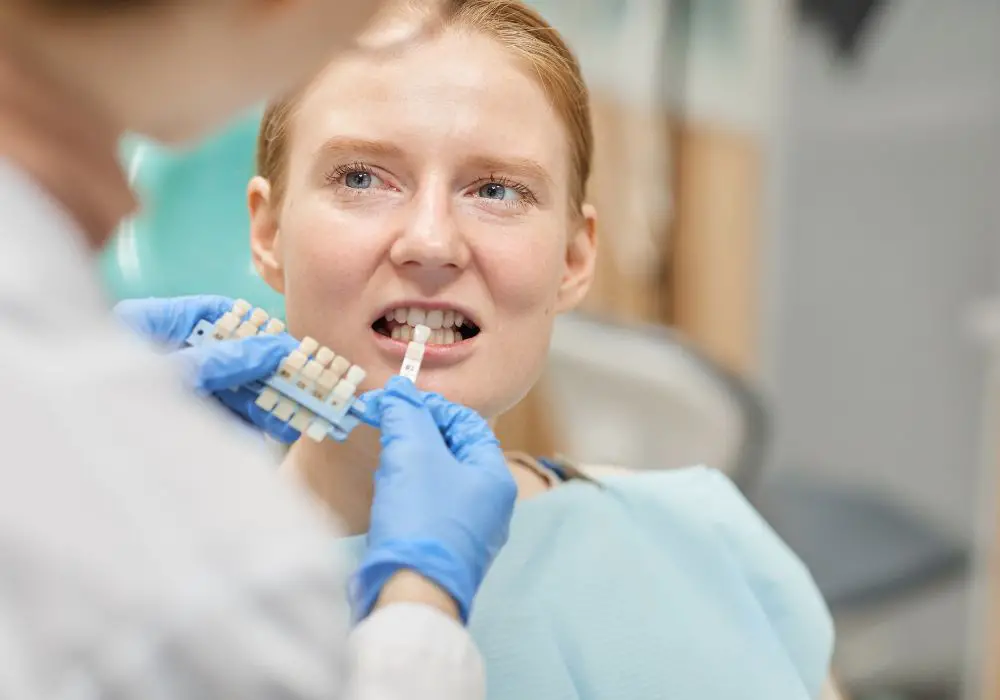
If you have a damaged tooth that needs to be restored, your dentist may recommend a dental cap or crown. A dental cap is a tooth-shaped cap that covers the visible portion of your natural tooth. It can be used to restore the shape, size, appearance, and strength of your tooth.
One common question people have about dental caps is whether they are glued on. The answer is yes, dental caps are typically glued or cemented onto your natural tooth. The cement used is a special dental adhesive that is designed to bond the cap to your tooth securely.
The process of getting a dental cap involves several steps. Your dentist will first prepare your natural tooth by removing any decay or damage and shaping it to fit the cap. Then, an impression of your tooth will be taken to create a custom cap that fits perfectly. The cap will be made in a dental lab and then sent back to your dentist for placement.
When it’s time to place the cap, your dentist will use a dental adhesive to bond it to your natural tooth. The adhesive is applied to the inside of the cap, and then the cap is carefully positioned onto your tooth. Your dentist will then use a special light to activate the adhesive and harden it, creating a strong bond between the cap and your tooth.
Overall, dental caps are a safe and effective way to restore damaged teeth. They are typically glued or cemented onto your natural tooth using a special dental adhesive. If you have any questions or concerns about dental caps, be sure to talk to your dentist.
Materials Used in Gluing Teeth Caps
When it comes to gluing teeth caps, there are two main types of materials that are used: dental cement and resin-based luting agents. Let’s take a closer look at each of these materials.
Dental Cement
Dental cement is a type of adhesive that is commonly used in dentistry to bond dental restorations, such as crowns, bridges, and veneers, to natural teeth. It is typically made from a mixture of various materials, such as zinc oxide, magnesium oxide, and calcium oxide, and is available in a variety of forms, including powder, liquid, and paste.
One of the main advantages of dental cement is that it has a relatively low viscosity, which allows it to flow easily into tight spaces and create a strong bond between the dental restoration and the tooth. Additionally, dental cement is resistant to moisture and can withstand the forces of biting and chewing, making it an ideal material for use in dental restorations.
Resin-Based Luting Agents
Resin-based luting agents are another type of adhesive that is commonly used in dentistry to bond dental restorations to natural teeth. Unlike dental cement, which is a powder that is mixed with a liquid to form a paste, resin-based luting agents are pre-mixed and come in a variety of shades to match the color of the patient’s teeth.
One of the main advantages of resin-based luting agents is that they are highly esthetic and can create a seamless bond between the dental restoration and the tooth. Additionally, resin-based luting agents are highly resistant to wear and can withstand the forces of biting and chewing, making them an ideal material for use in dental restorations.
In conclusion, both dental cement and resin-based luting agents are effective materials for gluing teeth caps. Your dentist will be able to recommend the best material for your specific needs based on factors such as the location of the tooth, the size of the restoration, and your personal preferences.
Maintenance of Teeth Caps
Taking care of your teeth caps is important to ensure their longevity and effectiveness. Here are some tips to help you maintain your teeth caps.
Regular Dental Checkups
It is important to visit your dentist regularly to ensure that your teeth caps are in good condition. During your checkup, your dentist will examine your teeth caps and ensure that they are properly fitted. They will also check for any signs of wear and tear, and make any necessary adjustments or repairs.
Proper Oral Hygiene
Proper oral hygiene is essential to maintaining your teeth caps. Here are some tips to help you keep your teeth caps clean:
- Brush your teeth twice a day with a soft-bristled toothbrush and fluoride toothpaste.
- Floss your teeth at least once a day to remove any food particles and plaque that may have accumulated between your teeth.
- Use an antiseptic mouthwash to kill any bacteria that may be present in your mouth.
- Avoid chewing on hard foods or objects, such as ice or pens, as this can damage your teeth caps.
- If you grind your teeth at night, talk to your dentist about getting a mouthguard to protect your teeth caps from damage.
By following these tips, you can ensure that your teeth caps remain in good condition and continue to protect your teeth for years to come.
Potential Issues with Teeth Caps
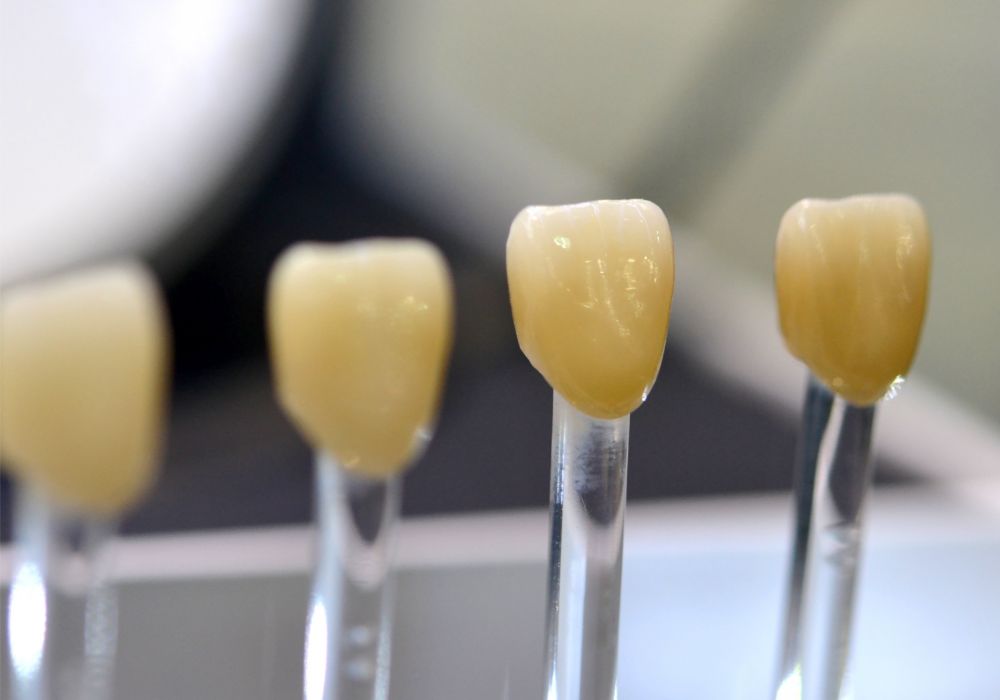
When it comes to dental procedures, it’s important to understand that there can be potential issues that may arise. Here are a few potential issues that you may experience with teeth caps.
Loose Caps
One potential issue with teeth caps is that they may become loose over time. This can happen if the cement used to attach the cap to the tooth begins to wear down. If you notice that your cap feels loose or wobbly, it’s important to schedule an appointment with your dentist right away. They can examine the cap and determine if it needs to be re-cemented or replaced.
Allergic Reactions
Another potential issue with teeth caps is that you may have an allergic reaction to the materials used to create the cap. This is rare, but it can happen. If you notice any signs of an allergic reaction, such as swelling, redness, or itching, contact your dentist immediately. They can examine the cap and determine if it needs to be replaced with a different material.
It’s important to note that while these potential issues may occur, they are not common. With proper care and maintenance, teeth caps can last for many years without any issues. If you have any concerns or questions about teeth caps, be sure to speak with your dentist. They can provide you with more information and help you determine if this procedure is right for you.
Frequently Asked Questions
How are teeth caps attached to teeth?
Teeth caps, also known as dental crowns, are attached to teeth using dental cement. The tooth is first prepared by removing any decay or damage and shaping it to fit the crown. The crown is then placed over the tooth and cemented in place.
Are dental crowns permanently attached?
Dental crowns are designed to be a permanent solution for damaged or decayed teeth. However, they can become loose or come off if the cement fails or if the tooth underneath becomes damaged.
What type of glue is used for dental caps?
Dental caps are attached using dental cement, which is a type of adhesive specifically designed for use in the mouth. The cement is safe and non-toxic, and is designed to bond strongly to both the tooth and the crown.
How long do dental caps stay attached?
With proper care and maintenance, dental caps can last for many years. However, they may need to be replaced if they become damaged or if the tooth underneath becomes decayed or damaged.
What are the risks associated with dental caps?
Like any dental procedure, there are some risks associated with dental caps. These may include sensitivity, discomfort, or damage to the tooth or surrounding tissues. However, these risks are generally minimal and can be minimized by working with a skilled and experienced dentist.
Where can I find affordable dental caps?
The cost of dental caps can vary depending on a number of factors, including the location of the dental office, the materials used, and the complexity of the procedure. However, there are many options available for finding affordable dental caps, including dental insurance, financing plans, and discount dental programs. Your dentist can help you explore these options and find the best solution for your needs and budget.


